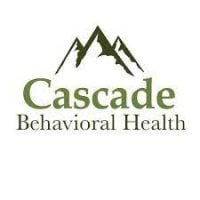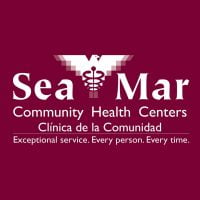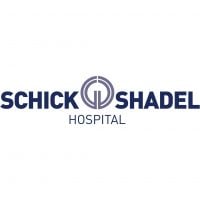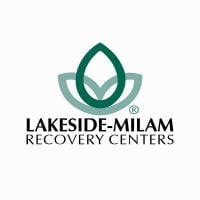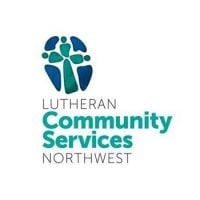Cascade Behavioral Health Hospital
Drug Rehab Center in Seattle, Washington
Cascade Behavioral Health Hospital provides a full-service experience for individuals struggling with alcohol and drug addiction, offering a wide range of treatments and therapies, as well as aftercare support, and is accredited by JCAHO, NAATP, and State Licensure.
About This Washington Facility
Cascade Behavioral Health Hospital provides a full-service experience for individuals struggling with alcohol and drug addiction, as well as co-occurring disorders, such as dual-diagnosis. The hospital offers a wide range of treatments and therapies, from creative arts therapy to motivational interviewing, as well as aftercare support, detox services, drug rehab, inpatient, intensive outpatient, and residential treatment. Cascade Behavioral Health Hospital is accredited by the Joint Commission on Accreditation of Healthcare Organizations (JCAHO), National Association of Addiction Treatment Providers (NAATP), and State Licensure. The hospital has a 135-bed facility and accepts private health insurance.
At Cascade Behavioral Health Hospital, patient-centered care is a top priority. Through individual and group therapy, recreation, and nutrition guidance, the facility creates an environment of healing where patients can focus on their recovery in a safe and supportive setting. The hospital’s experienced team of doctors, therapists, social workers, and addiction specialists has the expertise and compassion to provide tailored treatment plans and a high standard of care. Patients and families can benefit from Cascade Behavioral Health Hospital’s comprehensive range of services, aiming to give them the best possible chance of achieving lifelong sobriety.
Genders
Ages
Modality
Additional
Accreditations
State License
NAATP

JCAHO
Conditions and Issues Treated
Opioid Addiction Treatment supports people recovering from addiction to prescription drugs as well as illegal opioids. This is a hospital-based or residential treatment. Depending upon one’s age, detox without the appropriate medication may be unpleasant or even dangerous–some get body aches, fever, chills, while others may even have seizures.
Opioid treatment involves medically assisted detox, physical and mental support. Most rehabilitations use an array of treatments to ensure overall wellbeing, such as Medication-assisted therapy (MAT) in which one gets behavioral therapy, medicines, and counseling. A client-centered approach can reduce one’s chances of relapse. Therapists at work with the client to figure out environmental and behavioral triggers, giving them the power to change the patterns.
Levels of Care Offered at Cascade Behavioral Health Hospital
This center offers a variety of custom treatment tailored to individual recovery. Currently available are Aftercare Support, Detox, Drug Rehab, Dual-Diagnosis, Inpatient, Intensive Outpatient, Outpatient, Partial-Hospitalization, Residential, with additional therapies available as listed below.
Detoxification is a reduction in the effects of drugs and alcohol. It can be beneficial for people who have a history of withdrawal, who are at risk for dangerous health concerns, or who are unable to function well in their day-to-day lives due to addiction.
Detoxification is beneficial for:
- People who are unable to overcome addiction without the help of professional care.
- People who are at risk for dangerous health conditions due to withdrawal.
- People who are at risk for overdose or serious health concerns after a relapse.
If you believe that addiction treatment is right for you or a loved one, you can contact your primary care physician, or search for addiction treatment centers in your area. Treatment is beneficial to people who are motivated towards recovery, and who understand the benefits of professional care.
An inpatient is a person who stays in a hospital or rehab center during treatment. For alcohol- and drug-dependent individuals, inpatient rehabs provide individualized around-the-clock services. Inpatient treatment programs address a person’s unique physical, medical, and psychological needs. A team of experts assess the severity of the addiction and design a highly tailored program. typically, the length of stay in an inpatient facility in Seattle, WA is 30 days. Those with severe addiction may need to stay at the facility for 60 to 90 days.
Daily trips to the hospital that provides the treatment include intensive outpatient services (IOP). IOP in Washington is appropriate for patients in residential recovery facilities that have been diagnosed with addiction. Patients return to their everyday lives gradually, increasing the likeliness of success in treatment.
Outpatient rehabilitation is a treatment that exists if a patient is not checking into Cascade Behavioral Health Hospital long term. In addition to helping them recover, the patient attends regular therapy sessions and detox and participates in other therapies. However, this is all primarily done from home. As a follow-up to inpatient treatment, outpatient treatment is usually recommended.
After rehabilitation, it helps people return to their everyday lives. It may also be an alternative to inpatient care in some situations. If they cannot leave their jobs, children, or don’t have the money for inpatient care, people can choose this method. Inpatient therapy, however, is the best method and most suggested level of treatment offered by Cascade Behavioral Health Hospital in recovering from addiction.
The halfway point between inpatient and outpatient care is Cascade Behavioral Health Hospital‘s Partial Hospitalization Program. It is for individuals in Washington who struggle with addiction but do not need treatment round the clock. Patients may reside in a recovery facility anywhere from 18 to 30 hours per week, but they can sleep at home. The program length could be anywhere from one to six months.
Residential treatment programs are those that offer housing and meals in addition to substance abuse treatment. Rehab facilities that offer residential treatment allow patients to focus solely on recovery, in an environment totally separate from their lives. Some rehab centers specialize in short-term residential treatment (a few days to a week or two), while others solely provide treatment on a long-term basis (several weeks to months). Some offer both, and tailor treatment to the patient’s individual requirements.
Treatment for substance abuse does not cease after an individual successfully completes a detox or rehabilitation program. A vital follow-up treatment service is aftercare support provided to individuals at Cascade Behavioral Health Hospital in Washington after they attain initial sobriety.
Aftercare support often takes the following forms: 12-Step Programs, Outpatient Treatment Programs, and Support Groups. The most effective aftercare programs are tailored to meet an individual’s specific needs and circumstances.
Therapies & Programs
Individual therapy involves one on one sessions between the patient and the therapist at Cascade Behavioral Health Hospital. Individual therapy provides patients with a safe environment where they can openly discuss their problems with the therapist. The patients find the therapist as a person who they can trust. It helps them to open up and discuss personal and sensitive issues, which they may not be comfortable discussing in a group setting.
Individual therapy aims to identify the core issues that would have led the patient to substance abuse and address the root cause effectively. The therapist can develop patient-specific customized solutions through individual therapy, which aids speedier recovery.
Recovery can be more effective if the entire family’s involved. Family therapy hosted by Cascade Behavioral Health Hospital brings in the addict’s family to explore genetic factors. It gives loved ones the tools for dealing with addiction and its underlying mental issues. It is a recommended step in helping addicts adapt to sober living.
Trauma is one of the most common causes of psychological disorders. It’s often found in people with addiction diagnoses. Trauma therapy addresses this by examining the emotions and thoughts people have formed due to past traumas. Traumas are complex but trauma therapy can reduce their ability to contribute to addictive behaviors.
Dialectical Behavioral Therapy is a form of Cognitive Behavioral Therapy. It is designed for those who are prone to self-harm and suicidal behaviors. Cascade Behavioral Health Hospital aims to help patients understand the relationship between their thoughts, feeling and behaviors and it gives them the tools to make a change. It is effective for those whose addictions and behaviors stem from extreme mental health issues.
Rehabilitation is not just limited to bringing an individual out of addiction and achieving sobriety. It is considered complete only when an individual starts leading a normal and balanced life. Life skill therapy focuses on the various skills that helps an individual to lead a normal life. Patients often do not take care of themselves, struggle professionally and withdraw from social interaction due to the physical and emotional disturbances caused by addiction.
Life skills therapy helps them to improve various personal, professional and social skills such as cooking healthy meals, maintaining proper hygiene, budgeting, decision making, time management, regulation of emotions and resolving the interpersonal conflicts effectively.
The right diet can improve a person’s general outlook, sleep habits and thought processing skills. MNT also lowers the occurrence of chronic diseases such as adult-onset diabetes. Dieticians like those at Cascade Behavioral Health Hospital in Seattle, WA believe that nutrition therapy is the key to making significant lifestyle changes.
Nicotine Replacement Therapy (NRT) uses low dose nicotine products to ween smokers away from cigarettes. The products get nicotine into the bloodstream without smoking reducing addiction to the physical habit. It also allows addicts to adjust to lower doses to reduce withdrawal symptoms.
Patient Experience
Creative Arts
It is believed that enhancing creativity and developing skills related to it can help people with addiction recover faster. Activities such as painting, writing, acting, and dancing are considered therapeutic and hosted and managed by Cascade Behavioral Health Hospital in Seattle, Washington. They become outlets for patients to blow off steam, channel their emotions, and express their thoughts.Fitness Therapy
Opting for fitness therapy allows someone to get through addiction recovery while effectively rebuilding their body. This is a great type of therapy to pair with nutritional therapy, as the combination of getting fit and eating right can help someone in recovery feel better and make healthier choices from the start. This therapy offered by Cascade Behavioral Health Hospital in Seattle, WA establishes a firm connection between the body and mind, and teaches how to make healthy life habits that do not involve addiction.
Payment Options Accepted
For specific insurance or payment methods please contact us.
Is your insurance accepted?
Ask an expert, call (888) 674-0062
Additional Details
Specifics, location, and helpful extra information.
Seattle, Washington 98168 Phone Number(206) 745-4473 Meta DetailsUpdated November 25, 2023
Staff Verified
Patient Reviews
There are no reviews yet. Be the first one to write one.
Seattle, Washington Addiction Information
Washington's substance use, abuse, and addiction rates have followed the trends of the rest of the over the past years. Methamphetamine abuse is the biggest threat to Washington. Heroin-related overdoses increased by almost 450% from 2006 to 2016. 20% of all annual deaths in Washington are somehow drug and/or alcohol-related. Drugs are widely abused in Washington because they are easily trafficked in and out of the state.
In Seattle, Washington, drug addiction is a big problem. In 2016, there were nearly 500 drug overdose deaths in Seattle, with opioids responsible for most of those deaths. 4.5% of people aged 12 or older reported using psychotherapeutic drugs for nonmedical purposes. Some of the most common treatments include inpatient rehab, outpatient rehab, and detox centers.
Treatment in Nearby Cities
- Kelso, WA (97.1 mi.)
- Sumner, WA (19.8 mi.)
- Duvall, WA (22.8 mi.)
- Eastsound, WA (88.3 mi.)
- Shelton, WA (42.1 mi.)
Centers near Cascade Behavioral Health Hospital
The facility name, logo and brand are the property and registered trademarks of Cascade Behavioral Health Hospital, and are being used for identification and informational purposes only. Use of these names, logos and brands shall not imply endorsement. RehabNow.org is not affiliated with or sponsored by Cascade Behavioral Health Hospital.
